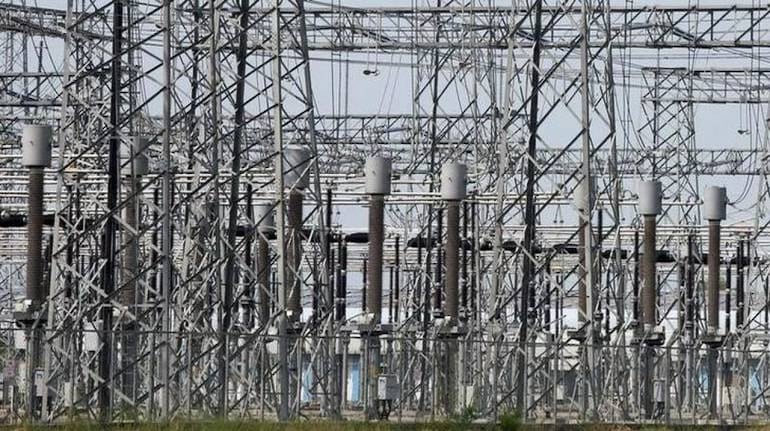



Electricity bills of consumers across all segments (domestic, industrial and commercial) in Delhi are set to increase by 1.49 percent to 9.42 percent as the state power regulator has approved a revision in a surcharge called power purchase adjustment cost (PPAC).
As per orders issued by the Delhi Electricity Regulatory Commission (DERC) and reviewed by Moneycontrol, the power bills of consumers of BSES Rajdhani Power Limited (BRPL) will increase by 6.39 percent. BRPL supplies power to at least 2.9 million customers - the highest of all the four distribution companies (discoms) in the national Capital.
Consumers of BSES Yamuna Power Limited (BYPL) will have to pay 9.42 percent more towards their electricity bills. This is the highest increase approved by the DERC of all the four discoms. BYPL supplies power to 1.9 million consumers.
Power bills of those under Tata Power-DDL, which also serves 1.9 million customers, will go up by 1.49 percent, the lowest hike of all. At the same time, those under the New Delhi Municipal Council (NDMC) will have to pay 2 percent more in their bills. NDMC has a customer base of at least 46,000 consumers, the lowest of all the discoms in Delhi.
The PPAC surcharge has already come into effect from this month and will reflect in the upcoming electricity bills of consumers in Delhi. It will be valid till March 2024, after which another PPAC revision is likely.
Delhi's minister for power Atishi said consumers who get free electricity up to 200 units will have no impact from the hike in surcharge. However, anyone consuming more than 200 units will have to pay more for their power bills.
The PPAC is a surcharge levied on consumers to compensate the distribution companies (discoms) for variations in the market-driven input costs (additional costs on account of increase in coal, freight and transmission prices and short-term power purchases through exchanges). It is levied on every electricity bill, and, in Delhi, this surcharge is supposed to be revised on a quarterly basis, in accordance with the orders by the Union ministry of power and the Appellate Tribunal for Electricity (APTEL). In fact, power purchase cost accounts for about 80 percent of the total cost incurred by distribution companies.
To be sure, PPAC is already levied on every power bill in Delhi. But from this month, power bills will go up because the DERC has approved increasing the PPAC for every discom. Instead of 22.18 percent, BYPL will levy a PPAC surcharge on every bill of 31.6 percent. For BRPL, it will now be 27.08 percent instead of 20.69 percent. Tata Power-DDL will be able to levy a PPAC surcharge of 29.13 percent instead of 27.64 percent. NDMC will impose 30 percent, instead of 28 percent on power bills.
Prior to the orders issued this month, PPACs were last revised by the DERC on June 10, 2022. The DERC is yet to announce its annual tariff order for Delhi for FY 2023, and the delay is due to vacancies in the Commission.
DERC running with just one memberOn June 21, the President appointed former Allahabad high court judge Umesh Kumar as the new chairman of the DERC, even as the incumbent Aam Aadmi Party (AAP) government was against the move as it wanted justice Rajeev Kumar Srivastava for the post. The post was lying vacant since January this year, since even Kumar is yet to take oath as the new DERC chairperson.
The post of member (legal) is also lying vacant. The DERC is currently operating with just one member (technical) AK Ambasht.
Political blame game over hike in power billsThe DERC's orders of allowing hikes in PPACs which will increase electricity bills in Delhi did not go down well with the AAP government, which blamed the Central government for the move.
“If power tariffs are going up in a city like Delhi then it’s only because of the Central government. Power tariffs are increasing in the country because of the Centre’s mismanagement which has caused an artificial shortage of coal in the country. The Centre is forcing power companies to buy imported coal which costs 10 times more than the coal produced locally," said Atishi.
“In 75 years of India’s history, for the first time there is an artificial shortage of coal in the country, that is why coal cost is increasing and therefore, power bills too. The AAP government wants to know what is the Central government's relationship with foreign coal exporters that it is forcing producers to buy coal and that too at such high prices," she said.
Delhi BJP president Virendra Sachdeva alleged that DERC member AK Ambasht, who was appointed by the AAP government, had, on June 22, ordered the tariff surge on the “demand of private companies”, even as the new chairperson of the body was notified by the President.
“The last order issued by the DERC for PPAC hikes was on June 22. So, the silence of the Kejriwal government, four days after DERC allowed power discoms in Delhi to increase the power tariff, indicates collusion. The silence of the power minister for all these days on the issue shows that there is some nefarious deal,” Sachdeva alleged.
Discover the latest Business News, Sensex, and Nifty updates. Obtain Personal Finance insights, tax queries, and expert opinions on Moneycontrol or download the Moneycontrol App to stay updated!
Find the best of Al News in one place, specially curated for you every weekend.
Stay on top of the latest tech trends and biggest startup news.